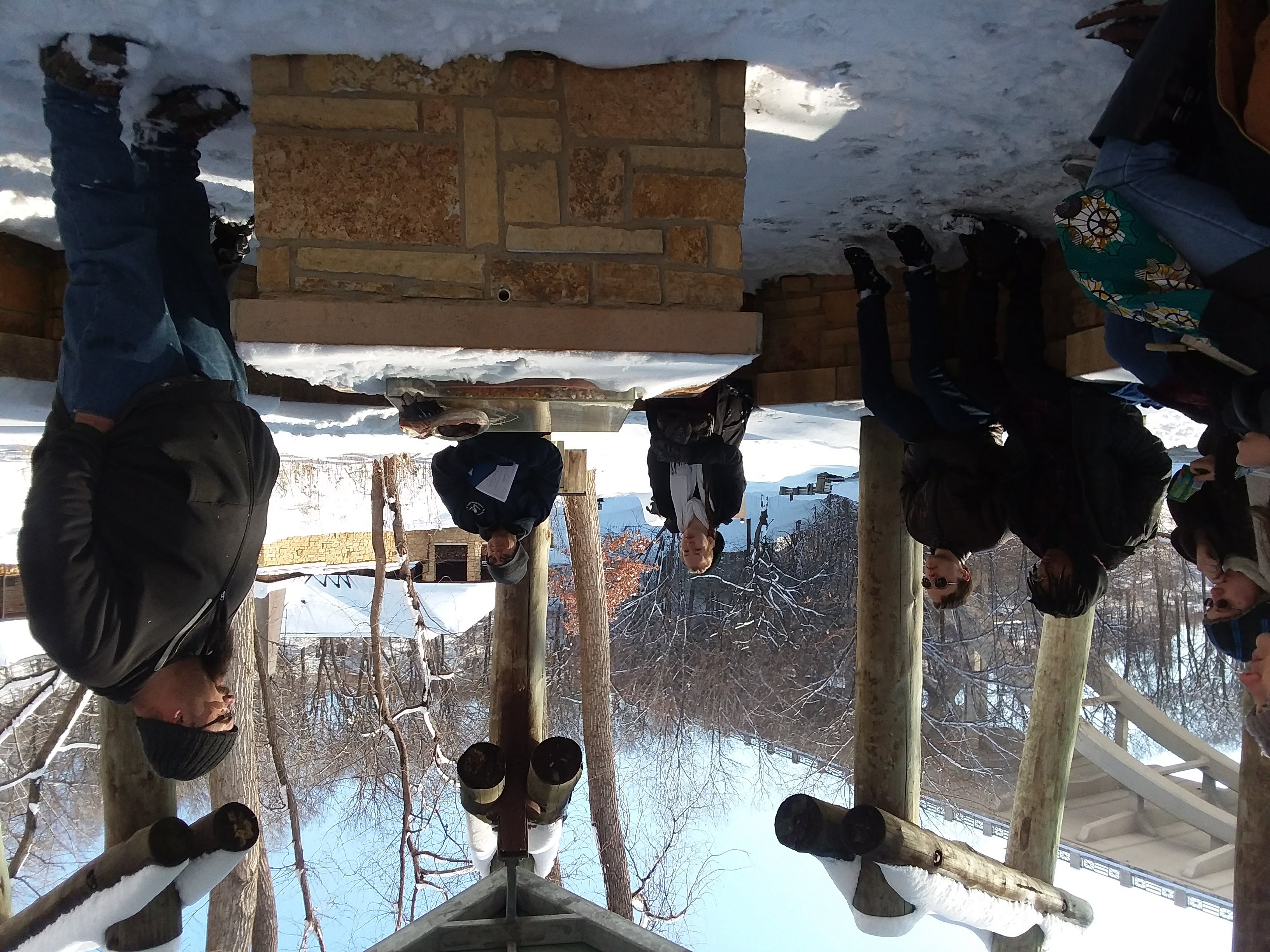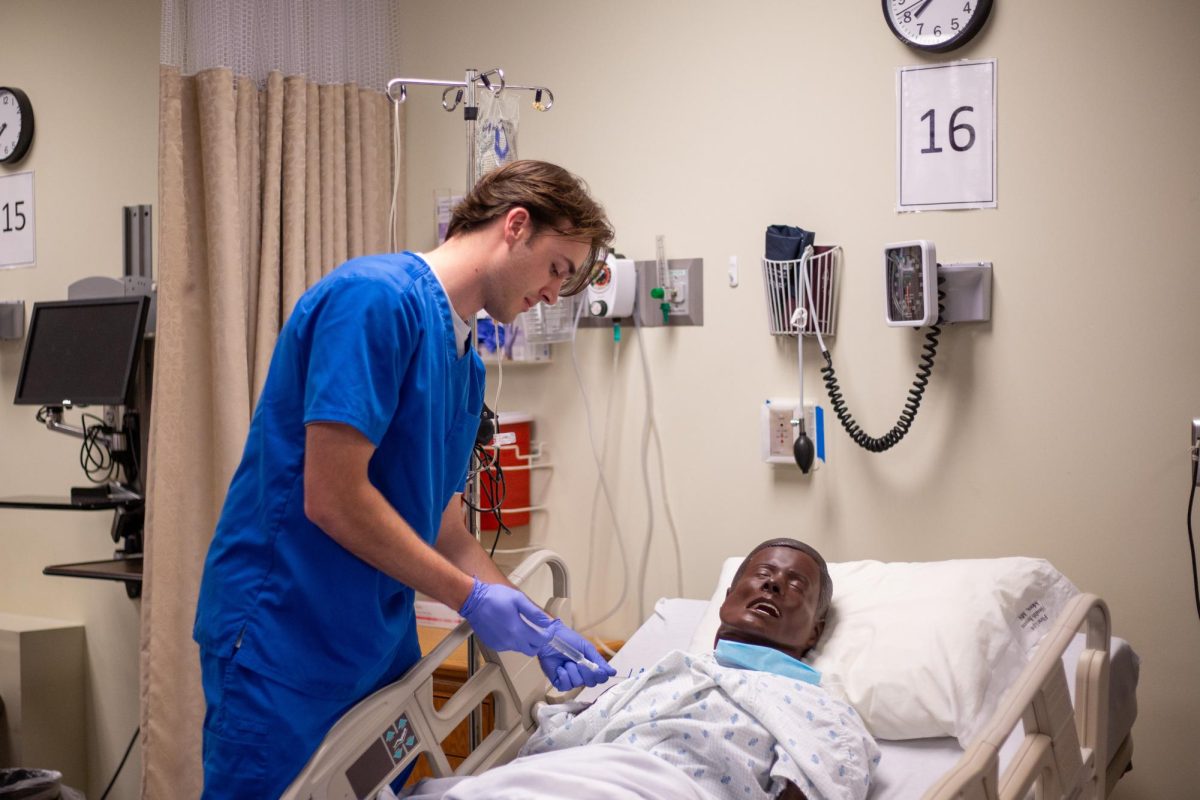How do students and faculty of a Christian university converse with, learn from and connect to people of other faith traditions?
By Alayna Hoy
Marion Larson has spent most of her life in Christian communities. A pastor’s kid, Larson attended Christian schools K-12 and Wheaton college for her undergraduate degree. After earning her graduate’s degree at the University of Minnesota, Larson returned to a Christian environment and started teaching English at Bethel University.
“I’ve only ever studied other religions in a context where the person teaching me was a Christian,” Larson said. “The mentality that I had been raised with had been more of how to prepare for combat … So many Bethel students come from backgrounds where it’s, ‘how would you respond to the question,’ and not as much emphasis is on ‘how do you listen well.’”
Still, interfaith dialogue can feel like an evasive goal at Bethel. University policy requires all faculty to be of the Protestant Christian faith. Though Bethel does not explicitly say it will prevent non-Christian, prospective students from attending the College of Arts and Sciences, Bethel’s website does say, “We expect most college students to explore faith questions and to come to a deeper level of understanding and commitment to their faith during their college years.”
Larson has always wanted her classroom to be a place where students could disagree, ask questions and explore different perspectives. As she grappled with how to introduce and learn about other faith traditions at a Christian university, she found insight from authors such as C.S. Lewis and Martin Buber, and realized a shared interest in interfaith learning, discussion and interaction with Dr. Sara Shady.
“I think interfaith engagement is an essential learning objective and skill for all Bethel students, and for all Christians,” Shady said. She cites Jesus’ call to love our neighbor, the practical value of empathy and understanding in the workplace and data which shows students grow deeper in their own faith commitments when engaged in interfaith interaction as reasons for this belief.
“This is not about reducing our beliefs to a lowest common denominator or saying all paths lead to God,” Shady said. “Rather, we’re focused on civic pluralism … how do we learn to live well and serve well in a world of people with very different beliefs.”
Shady and Larson formed a working relationship with a scholarly focus on interfaith dialogue. Their work has culminated in numerous articles, presentations and a co-authored book, ‘From Bubble to Bridge: Educating Christians for a Multifaith World’ published January 2017 on the subject.
Last year Provost Deb Harless officially appointed Shady, Larson and four other people to form an interfaith task force. Tanden Brekke, Jen Hillier, Amy Poppinga and Jason Steffenhagen make up the rest of the team. The task force works to foster and create opportunities for students to learn and engage in interfaith interactions. The group often works to obtain the grants and funding needed to realize these possibilities.
Most recently, a grant from Interfaith Youth Core funded an interfaith forum at the University of St. Thomas. The event, called “Interfaith Storytelling for a Vibrant Democracy: Engaging the Diverse, the Devout, and the ‘Nones,’” hosted students and employees from Bethel, St. Thomas and Augsburg. 90 people registered for the event, which featured break-out sessions and speakers from different faiths.
Other events have included an interfaith learning session last fall on Bethel’s campus, a convocation hosting Eboo Patel, the founder of Interfaith Youth Core, and a Dakota Sacred Sites tour this February.

An ongoing Bethel partnership with the community at Frogtown and Summit University provides students with many opportunities to learn within a religiously diverse neighborhood.
“Sometimes we can be in environments where our faith becomes so normalized we don’t take time to be receptive about it,” said Tanden Brekke, Assistant Director of Service-Learning and Community Engagement, who leads this initiative and others. “It’s really critical to be talking about this stuff at Bethel.”
Senior Caissa Dietrich has invested hours into teaching ESL within the Frogtown community and nearly as much time learning from the many faiths her students bring into the classroom.
“I think it’s important to seek interfaith dialogue because there’s so many ideas that people have about other faiths, and stereotypes,” Dietrich said. “Unfortunately, sometimes Bethel is so much of a bubble that it’s hard to seek out these interfaith dialogues. You have to be really intentional with it.”
Still, student interest in interfaith engagement may be waning. Last year, the student-led club Better Together facilitated interfaith dialogue and events. After student leadership graduated in May 2017, the club ended due to lack of interest and organization.
“There is a danger in a place like Bethel to only focus on what’s happening here,” said Biblical and Theological Studies Chairman Victor Ezigbo. “Because of its history and heritage, Bethel is not usually a place where interfaith dialogue is really emphasized.”
Ezigbo said conversing with and learning about people of other religions is a great way to be a disciple of Jesus, to recognize the full humanity of all people and to understand the role religion often plays in violence and other issues of our modern world.
Within Bethel’s Biblical and Theological Studies department there are initiatives, classes and entire religious studies minor dedicated to the study of other faith traditions. Courses such as ‘History of Islam,’ ‘Judaism’ and ‘Religious Traditions in Asia’ are available to students hoping to dig into those topics.
Interfaith conversations are happening in courses and events on other MIAC campuses as well. At St. Thomas, Dr. Hans Gustafson is the Director of the Jay Phillips Center for Interfaith Learning. He also teaches courses on theology and interreligious studies in St. Thomas’s CAS program.
“With the increasing religious diversity of our cities and towns, cultivating interreligious wherewithal will become increasingly important for our personal and social flourishing at home, in community and at work,” Gustafson wrote in a State of Formation article published online last September.
Bethel’s interfaith task force is in frequent conversation with St. Thomas and other universities, sharing ideas to lead to more frequent and impactful interfaith interaction on Christian college campuses. Some of St. Thomas’s current initiatives include a student interfaith leaders scholarship program, an interfaith council and an ‘Encountering Religious and Cultural Traditions’ lecture series.

![Nelson Hall Resident Director Kendall Engelke Davis looks over to see what Resident Assistant Chloe Smith paints. For her weekly 8 p.m. staff development meeting in Nelson Shack April 16, Engelke Davis held a watercolor event to relieve stress. “It’s a unique opportunity to get to really invest and be in [RAs’] lives,” Engelke Davis said, “which I consider such a privilege.”](https://thebuclarion.com/wp-content/uploads/2024/05/041624_KendallEngelkeDavis_Holland_05-1200x800.jpg)
















